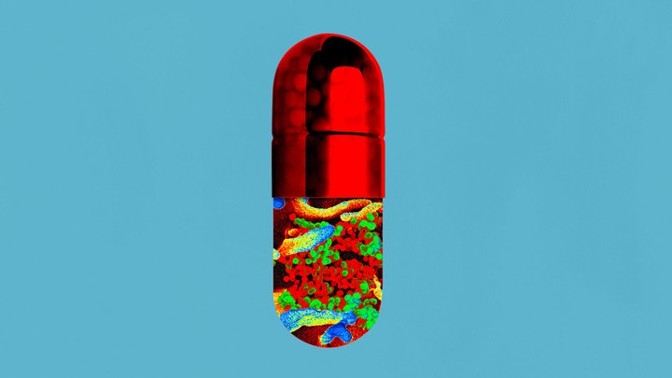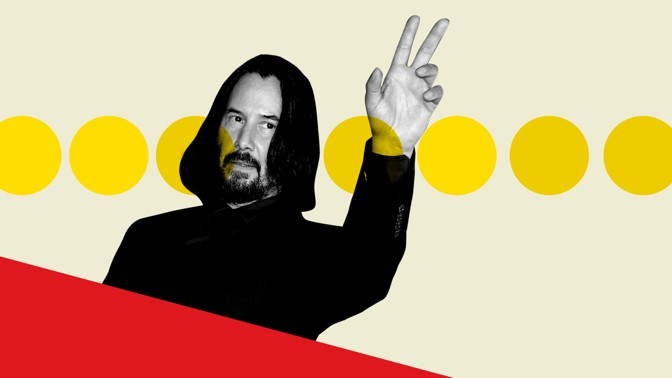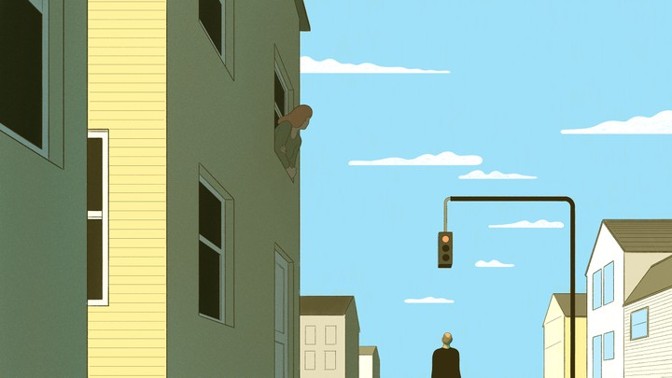Here’s how to think about these daily dispatches from the White House:
They aren’t press conferences so much as “reality shows with no winners.” Trump is using them to build a dystopia in real time, Megan Garber argued last week.
Trump clearly loves the format. “In fact, it’s one of the few presidential duties he actually seems to enjoy,” our politics staff writer David A. Graham points out.
These briefings, by design, keep attention on the president. And with the 2020 contest looming, “incentives to further politicize the stage will only grow,” Peter predicted back in early April.
Trump’s foes watch the spectacle from afar, shot glasses nearby. “I start off with a beer and, depending on the magnitude of crazy, I could be on tequila before too long,” Michael Steele, a former Republican National Committee chairman and an MSNBC commentator, told Peter.
One question, answered: What would a coronavirus drug have to do in order to actually help a patient?
The challenge of fighting viruses is that they don’t have very many weak spots for a treatment to exploit. In order to succeed, a treatment would have to block the virus’s proteins from “hijacking, suppressing, and evading humans’ cellular machinery,” our reporter Sarah Zhang explains.
Researchers are exploring ways to defeat the virus at different stages—from stopping it at the earliest point, before it can even enter a cell, to treating a patient’s immune response once the virus has already taken hold. Sarah breaks down a few different steps in the disease cycle that could prove lasting targets for a treatment.
What to read if … you just want practical advice:
View all of our stories related to the coronavirus outbreak here. Let us know if you have specific questions about the virus—or if you have a personal experience you’d like to share with us.
We’re looking to talk with individuals who are applying for unemployment insurance due to the pandemic. To share your experience, please write to us with your name, location, and relevant job details.
Today’s Movie-Club Pick
Tonight’s film: Speed (1994)
All week, we’re exploring the multi-decade career of Keanu Reeves, by revisiting five essential films. The second pick in our series is the ’90s classic Speed. Our critic David Sims explains:
Reeves had made only one other action movie before Speed—1991’s Point Break, the Kathryn Bigelow classic that helped define him as more than a striking teen star. But in Point Break, he was playing a cheerful former football player with a puppy-dog smile, whereas Speed felt a little more geared toward Reeves’s grown-up persona. As the hero cop Jack Traven, he’s icy and calm, even when thrust into the truly ludicrous scenario of trying to save the passengers of a bus that will explode if it slows down. Reeves’s strange serenity is what distinguishes him in so many of the action hits that followed—the Matrix films, Constantine, John Wick. But in Speed, that quality is particularly elemental, an alpha heroism with none of the usual macho bravado.
Participate in the discussion using the Twitter hashtag #AtlanticMovieClub or by replying to this email with your thoughts. Be sure to check back tomorrow for the next pick.
Dear Therapist
Every Monday, Lori Gottlieb answers questions from readers about their problems, big and small. This week she advises a reader whose husband thinks social-distancing measures are too extreme:
He’s being way too lax about things, and whenever we try to talk about it, we have a fight.
Read the rest, and Lori’s response. Write to her anytime at dear.therapist@theatlantic.com
This email was written by Caroline Mimbs Nyce, with help from Isabel Fattal, and edited by Michael Owen.
Sign yourself up for The Daily here
We want to hear what you think about this article. Submit a letter to the editor or write to letters@theatlantic.com.
Source link
 Black America Breaking News for the African American Community
Black America Breaking News for the African American Community



